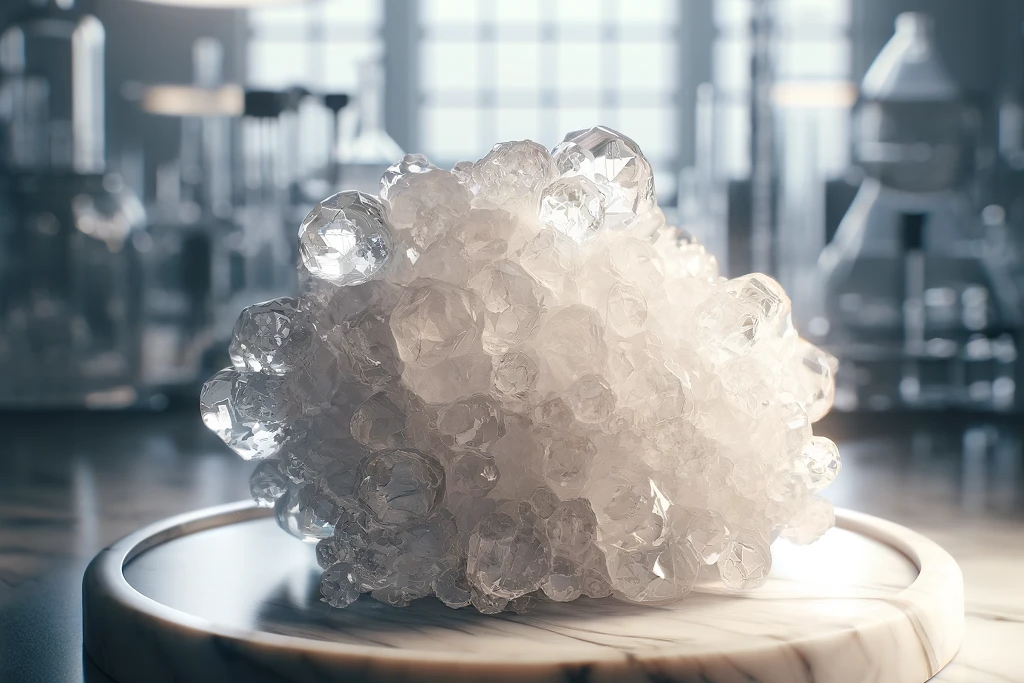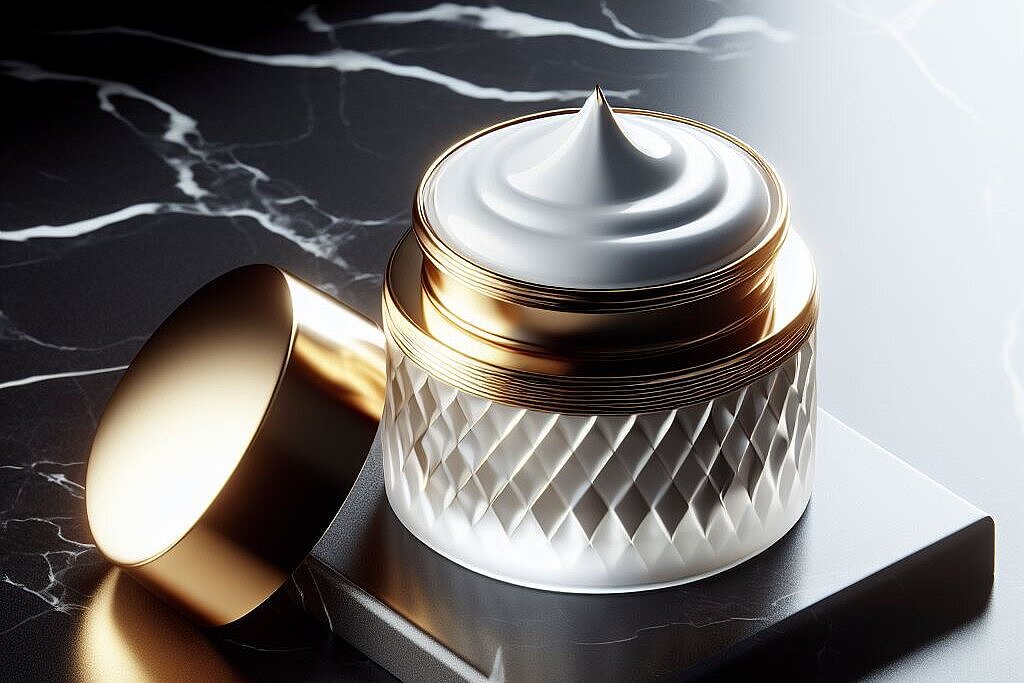Cetyl alcohol

Cetyl alcohol is an ingredient that is found in many cosmetics and care products. But what is cetyl alcohol and how does it affect dogs' skin? Find out everything you need to know about cetyl alcohol in this article.
What is cetyl alcohol?
Cetyl alcohol is a solid alcohol consisting mainly of the linear C16 alcohol 1-hexadecanol. It has a waxy consistency and a white to pale yellow color. It is obtained from plant or animal sources, for example palm oil or spermaceti.
Cetyl alcohol should not be confused with the liquid alcohols that are often used as solvents or preservatives in cosmetic products, such as ethanol or isopropanol. These alcohols can dry out and irritate the skin, whereas cetyl alcohol has a nourishing effect.
How does cetyl alcohol affect dogs' skin?
Cetyl alcohol has several functions in cosmetic and care products for dogs. It can be used as an emulsifier, stabilizer, viscosity regulator, mattifier and skin conditioner.
As an emulsifier, cetyl alcohol helps to combine water and oil phases and thus ensure an even distribution of the active ingredients. As a stabilizer, it prevents the emulsion from separating again or crystallizing. As a viscosity regulator, it influences the consistency and appearance of the products, for example whether they are creamy or liquid. As a mattifier, it reduces shine on the skin and ensures a pleasant skin feel. As a skin care product, it moisturizes, smoothes and protects the skin barrier.
Cetyl alcohol is therefore a useful ingredient for dog skincare, improving both the quality and effectiveness of products.
Are there any disadvantages or risks of using cetyl alcohol?
Cetyl alcohol is considered a safe and well-tolerated ingredient for dog skincare. It has no toxic or irritating effects and is not absorbed through the skin.
However, allergic reactions to cetyl alcohol can occur in rare cases, especially in sensitive or damaged skin areas. Symptoms may include itching, redness, swelling or a rash. If you notice such signs in your dog, you should stop using the product immediately and consult a vet.
You should also make sure that cetyl alcohol does not come into contact with your dog's eyes or mucous membranes, as it can cause irritation. Therefore, only use products that are specially formulated for dogs and follow the manufacturer's instructions.
Cetyl alcohol is a solid alcohol that is contained in many cosmetic and grooming products for dogs. It has various positive properties for dog skin care, such as emulsifying, stabilizing, viscosity control, mattifying and moisturizing. It is considered a safe and well-tolerated ingredient, although in rare cases it can trigger allergic reactions.
If you notice any signs of hypersensitivity or poisoning in your dog, you should see your vet immediately. We are not a substitute for a vet, but we try to be as accurate as possible. Every dog reacts differently and we recommend you get a second opinion or consult your vet if in doubt.
Stay healthy and take good care of your four-legged friend!😊
Similar to Cetyl alcohol
Chemical basics and origin Stearyl alcohol is a fatty alcohol characterized by a long, saturated carbon chain. It is obtained from both vegetable and animal fats and is widely used in the cosmetics...
Myristyl alcohol, also known scientifically as tetradecanol, is a saturated fatty alcohol with 14 carbon atoms. It is found naturally in some fats and oils and is often used in the production of...
Behenyl alcohol is a saturated fatty alcohol with the chemical formula C22H46O. It belongs to the so-called long-chain alcohols, which consist of more than 16 carbon atoms. It is a white, waxy solid...
Lanolin alcohol is a naturally occurring alcohol that is extracted from the wool fat of sheep. This wool fat, also known as lanolin, is used by sheep to protect their wool and skin against...



